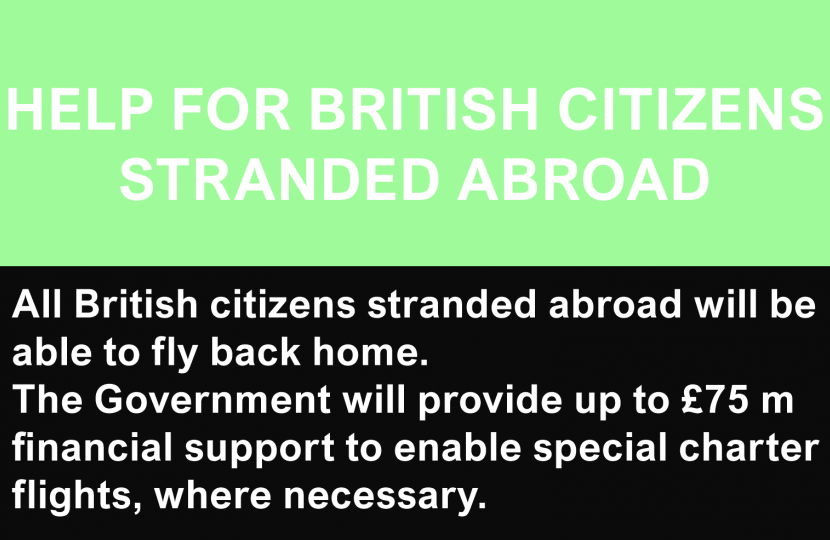
Tourists stranded abroad because of Coronavirus will be able to get back to the UK following an arrangement struck between the government and the airlines industry.
The global travel situation caused by Coronavirus has led to many people becoming stranded overseas. This is an unprecedented challenge with many countries closing borders and imposing travel restrictions with little warning. This has left many UK travellers struggling to get home.
Virgin, Easyjet, Jet2 and Titan Airways have today signed a memorandum of understanding negotiated by the Foreign Secretary and Transport Secretary. British Airways have also made clear that they will work with us in the national interest to get people home, and other airlines are expected to join. The Secretaries of State have published a joint letter to the airlines. The government is focused on getting Brits home through a twin-track approach:
- airlines recognising their responsibility for transporting their passengers with pre-booked tickets home, through offering them alternatives where routes are cancelled, allowing them to change tickets, where permissible – including between carriers – and offering them the latest information and advice as the situation changes
- where commercial routes do not exist, the government will provide up to £75 million financial support to enable special charter flights – operated by the airlines above and others – to fly to priority countries to bring back UK residents
Special charter flights for countries with no commercial routes will be prioritised according to the number of stranded British travellers and their vulnerability, including an assessment of the local health provision. In some places, access for flights to land and the ability to move around within the country to assemble for return flights will also be decisive factors.
Charter flights are already up and running to Ghana and Tunisia. We will add more countries this week with the aim of bringing people back from countries such as India and South Africa where large numbers of British travellers are stuck and commercial routes are completely suspended. We are negotiating intensely with countries around the world to secure permissions for return flights where airspace has been closed.
If you are abroad and affected by a British Embassy or Consulate closure, please ring the Foreign Office Switchboard on +44 20 7008 1500.
The government has pledged up to £75 million to pay airlines for the additional charter flights to ensure tickets are affordable. Once special flights have been arranged, these will be promoted through the government’s travel advice and by the British embassy or high commission in country. British travellers who want a seat on the flight will book and pay directly through a dedicated travel management company.
British tourists stranded abroad who want to return to the UK should first check if there are commercial routes available by visiting the airline websites, FCO travel advice pages for the country they are in and local British embassy social media.
If there are no commercial options, they should visit the travel advice pages and sign up to alerts for their location and follow embassy social media and email updates. When special return flights become available, these will be advertised by the embassy and British nationals on Travel Advice Pages and Embassy social media and those who have registered for updates will be contacted via email. British nationals will be asked to register their interest through our booking agents CTM.
Where people are in real need, our consular teams will work with them to consider their options. As a last resort, the Foreign Office will offer an emergency loan.
The government continues to urge countries around the world to keep transit hubs, airports and airspace open to ensure travellers are able to return to the UK. The Foreign Secretary has spoken to over 20 of his counterparts to support this effort and we have helped hundreds of thousands of British tourists return from all over the globe including 8,500 from Morocco, around 5,000 from Cyprus, and an estimated 150,000 from Spain.
